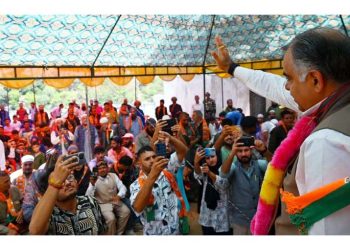A persistent cough, sometimes accompanied by fever, running through India for the past two-three months is due to Influenza A subtype H3N2, confirmed by the Indian Council of Medical Research (ICMR).
Former AIIMS-Delhi Director Dr Randeep Guleria spoke to news agency ANI on the rise in influenza cases caused by the H3N2 virus. He said that it spreads through droplets and mutates every year around this time.
Dr Guleria advised that with the festive season just around the corner, people should be careful, especially the elderly and those who have underlying comorbid conditions.
Symptoms
The influenza cases present as fever accompanied by sore throat, cough, body aches and runny nose. Dr Guleria added there is a rise in cases because the virus mutated and people’s immunity against it has become reduced.
“We had a pandemic many years ago because of H1N1. The circulating strain of that virus is now H3N2 and, therefore, it is a normal influenza strain. But we are seeing more cases because as the virus mutates a little bit, the immunity that we had against the virus becomes a little less and therefore people who are susceptible tend to get infection more easily,” Dr Guleria told ANI.
Rise in Cases
Dr Randeep Guleria said the rise in cases can be attributed to two things – there is a higher chance of getting influenza when the weather changes during this time of the year and people not wearing masks in crowded places post Covid.
Dr Guleria further said that the virus changes slightly every year. He explained that the H3N2 virus comes from a family of influenza viruses which mutates depending upon its various subtypes. The virus mutates or changes slightly every year, in what is known as antigenic drift, he added.
The former AIIMS chief said he does not think there is that much of a cause of concern because the rise in cases has not been accompanied by increased hospitalisation to a large extent.
Prevention
As we all know that prevention is better than cure, the way to prevent ourselves from catching the virus is wearing masks in crowded places.
“We also need to wash our hands frequently and also have physical distancing,” he added. According to Dr Randeep Guleria, there is also a vaccine for high-risk groups and the elderly.
He said it is okay to celebrate Holi but people should be careful, “especially the elderly and those who have underlying comorbid conditions like chronic respiratory diseases, heart problems, kidney problems or undergoing dialysis”.





































